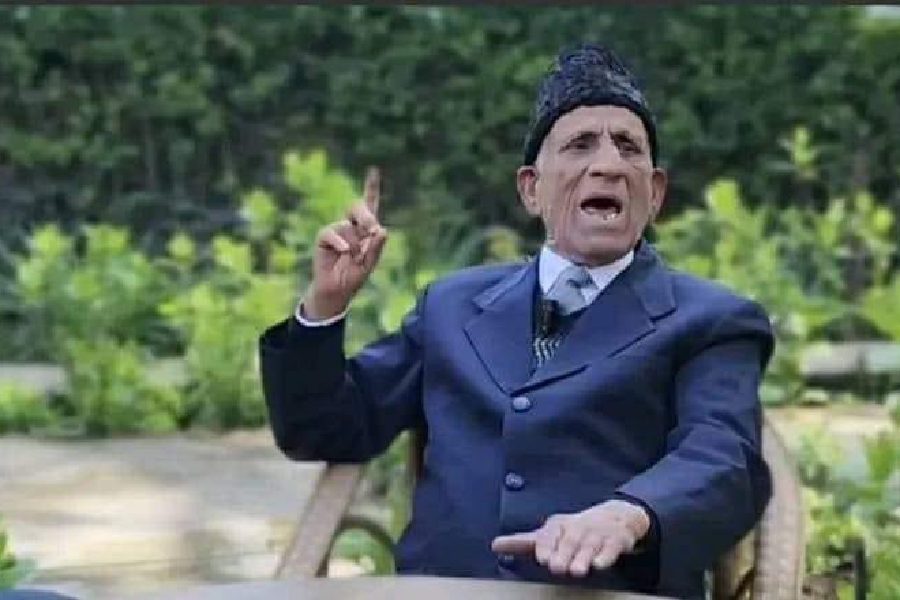Veteran trade union leader Sampat Prakash had been a pariah to his Kashmiri Pandit community all his life for his unconventional views and he remained so even after his death.
Prakash, 86, died in Srinagar on Saturday after suffering a cardiac arrest. Hundreds, mostly Muslims including leaders cutting across the separatist-mainstream divide, joined his last rites on Sunday.
A sea of people who mourned his death included four former chief ministers Farooq Abdullah, Ghulam Nabi Azad, Mehbooba Mufti and Omar Abdullah, CPM veteran M.Y. Tarigami and leaders of the Hurriyat Conference and ordinary Kashmiris.
But condolences from his own community were far and few. Kashmiri Pandit organisations, lieutenant governor Manoj Sinha’s administration and the BJP literally ignored his death.
Most Kashmiri Muslims, despite him being a devout Marxist, saw him as an epitome of Kashmiriyat, which represents the Valley’s syncretic culture.
“Sampat Prakash was a quintessential Kashmiri. If you needed to know what good every Kashmiri carries in him/ her, Sampat personified it. He was forthright about what he believed in. The book he co authored with Nandita Haksar is a typical example of contrarian writing. I had the privilege of being on his friend list. He would speak interminably but never bored even an audience of one. Rest in peace friend. Will miss you,” former minister Naeem Akhtar, who joined his cremation, tweeted.
Prakash risked ostracism from his own community as he talked about the resolution of the Kashmir issue. He was close to jailed J&K Liberation Front leader Mohammad Yasin Malik and vociferously opposed the 2019 scrapping of special status despite the government’s iron-fist policies.
BJP leader Ashwani Chrungoo, also a Kashmiri Pandit, said Prakash was an outcast in the community.
“Since he is no more, it is not good for me to talk about him. I pray for peace but we disagree with what he did,” Chrungoo initially said but later brought about a litany of charges as to why he was an “outcast” in the community.
Chrungoo said Prakash “never thought about his own community” and toed a line appeasing (extremist) Muslims.
“He was not liked by his own people,” the Pandit leader told The Telegraph.
“He negated the theory of persecution of Pandits and that they were thrown out, although he was a victim of exodus himself. There was a dichotomy in his life. He never mixed with Pandits, who kept aloof from him. Pandits never took him seriously.”
Chrungoo claimed he and his family had migrated to Jammu after militancy broke out. His associates in Kashmir said he briefly migrated but returned and spent much of his time in Kashmir.
Ravinder Kundo, Prakash’s engineer son who lives in Jammu and joined his cremation here, recalled telling his father how Pandits were being killed in Kashmir.
“But he would say that if one Kashmiri Pandit was killed, what about 50 Muslims who too were killed? Who will answer them? ” Kundo said.










